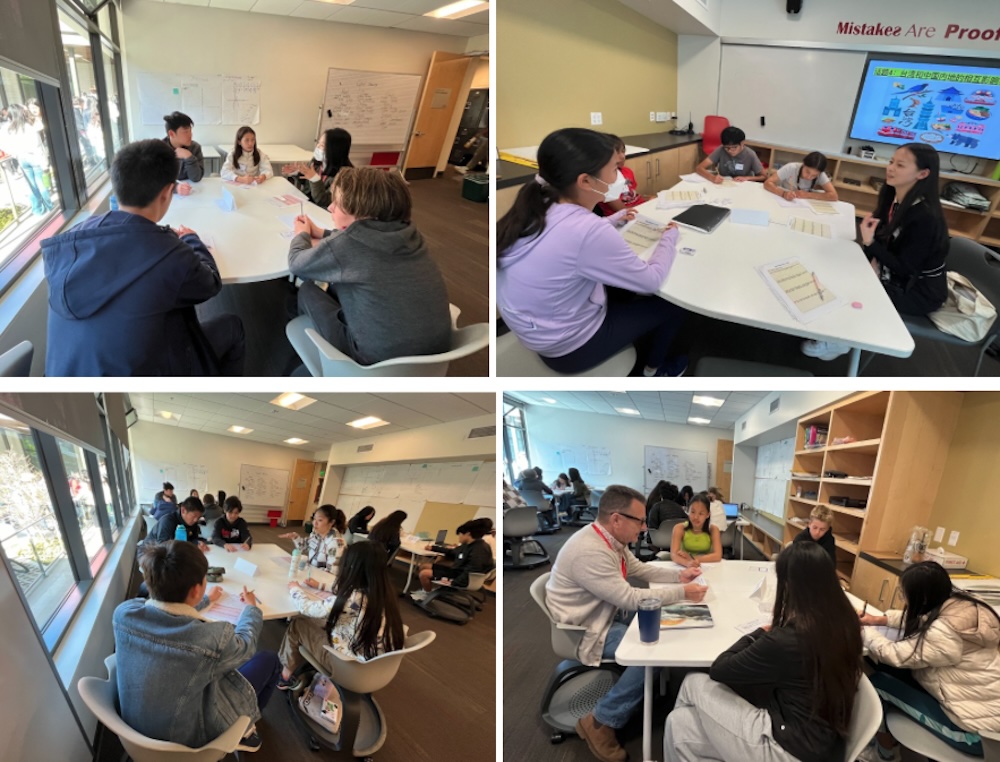Here are a selection of quick seventh grade teacher recaps from Middle School Head Joe Williamson’s newsletters this year to give a peek into the seventh grade classrooms in action.
Panel Discussion on Taiwan-China issues

In the seventh grade Chinese class, the capstone project in the Modern China unit is the Panel Discussion on Taiwan-China issues. Students posed thought-provoking questions to the panelists that consisted of both teachers and invited experts, probing the historical, political, and cultural dimensions of the issue. Through respectful dialogue and engaged participation, the panel discussion served as a platform for young minds to grapple with one of the world’s most pressing geopolitical challenges, empowering them to become informed global citizens.
